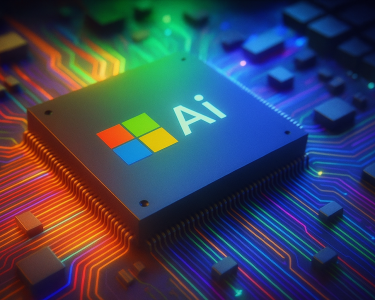At its Worldwide Developers Conference, Apple revealed a major redesign of its macOS operating system (WWDC). The move, which has long been anticipated for WWDC, completely redesigns the Mac experience by integrating artificial intelligence (AI) into a wide range of apps, tools, and systems. When combined, they have the power to turn the Mac into the ultimate AI PC.
The new technology, known as Apple Intelligence, enhances a variety of apps, including those from third parties. Apple, for instance, released features that may reword or summarize content within apps, such as how to modify an email message for a certain situation. Furthermore, Apple demonstrated certain generative AI features that are comparable to those in competitors’ products, such as Midjourney. However, Apple claims that its technology is more contextually aware. It will take a photo of your friend that you have tagged and remake it in one of the various styles if you ask it to generate an image of them for their birthday. In this instance, you do not need to provide a photo for Apple Intelligence to identify your friend.
Apple has also made an effort to set itself apart from competitors with its AI capabilities on the Mac by emphasizing privacy. According to Apple, the core of their AI work is on-device processing, which means that until your task calls for more intensive processing capacity, your private information will not leave your device. In situations such as those, Apple Intelligence will make use of Apple’s cloud servers, where Apple cannot access your data and only sends what is necessary for the current task to your device. Apple is unique among AI competitors in that it permits external experts to verify that its servers safeguard your privacy.
Critics may argue that Apple did not reveal anything genuinely bizarre, pointing out that ChatGPT’s introduction turned the world upside down, but that may be missing the mark. Here, the Mac has an advantage over other solutions because everything is integrated tightly into your apps and data, unlike ChatGPT, Google Gemini, and other programs. When the latest M4 CPUs are taken into account, the Mac has the potential to rank among the world’s top consumer-facing AI PCs.
The competition between AI
Even though iOS 18 received much of Apple’s attention, macOS 15 has emerged as one of the most significant operating system updates in Mac history thanks to many of the event’s biggest discoveries. This might finally dispel the rumor that Apple is falling behind in the AI space. Apple has responded to critics who said it was missing the potential for AI to change the face of computing. Fans of the company no longer have to miss out on using AI to speed up their day and save time on monotonous tasks.
In the last year or so, artificial intelligence (AI) has been a hot issue thanks to the advancements made by Google and OpenAI in terms of capabilities and applications. However, Apple has remained remarkably silent over this entire period, occasionally hinting at impending AI additions but never making a significant announcement.
Even worse, Microsoft, Apple’s longtime adversary, has thoroughly incorporated AI into its Windows operating system, with its Copilot tool appearing in many programs on the platform. Microsoft even introduced a line of PCs dubbed Copilot+ PC in an attempt to claim ownership of the “AI PC” idea.
After a long wait, Apple now seems prepared to refute that assertion by introducing a significant AI boost to the Mac, ushering it into the AI era. Apple is starting a new chapter, and it will be interesting to watch if it can defeat its more seasoned competitors and take the lead in AI.





